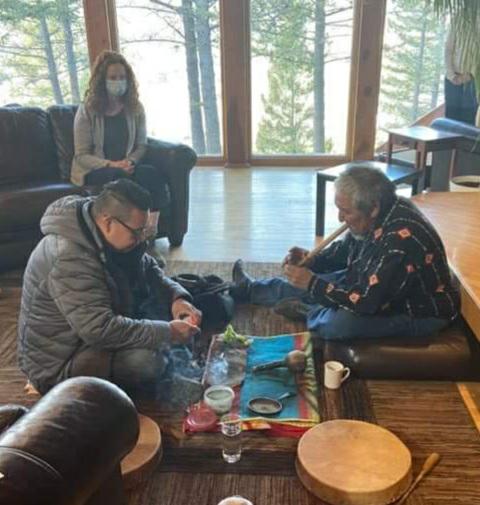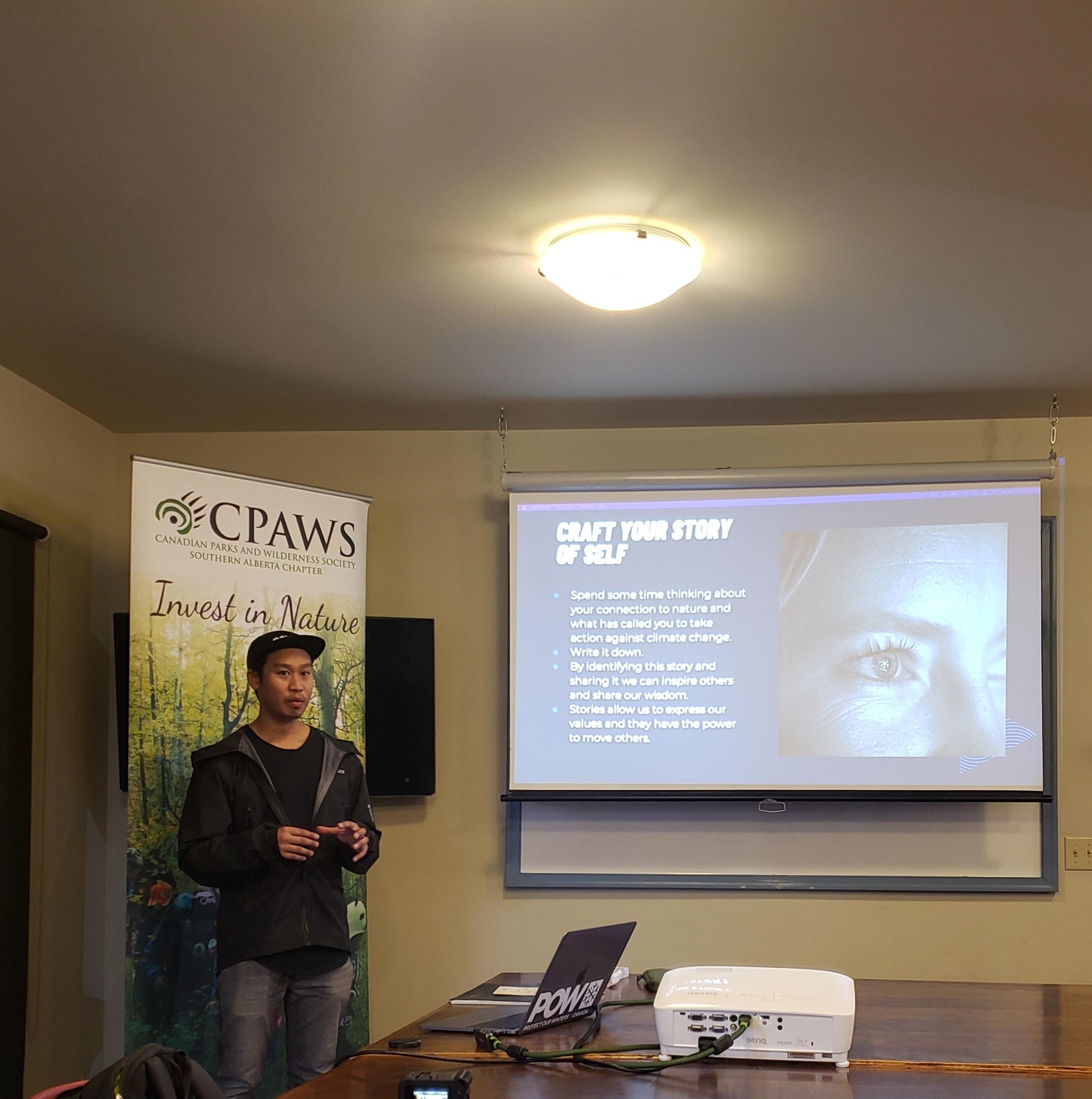Published by CPAWS Southern Alberta. Read the original blog.
Saying a (temporary!) goodbye to this year’s program participants
As the snow glistened on top of Ehagy Nakoda Range (Ha Ling Peak), the participants gathered for the final chapter of the 2021-22 Canadian Wilderness Stewardship Program held at O Châ Ûpchîchîyen Kudebi (Canmore) on the traditional territories of the Iyarhe Nakoda (Stoney Nakoda). We commenced the closing events to celebrate the hard work our CWSP participants from over the last 8 months.
Our first evening began with a refresher on our CWSP journey, followed by guest speaker Latasha Calf Robe. Latasha is the founder of the grassroots environmental group Niitsitapi Water Protectors and a member of the Kainaiwa First Nation (Blackfoot Confederacy). It was a tremendous privilege to listen to Latasha as she shared Nitisitapi (Blackfoot) oral history, including childhood stories passed down from her grandparents and ancestors. Latasha concluded her talk by sharing her perspective on conservation and the land, insights that resonated with many of us Wilderness Stewards or as future conservation leaders.

On Saturday morning, it seemed only fitting to start the day with the “people of the mountains” — otherwise known as the Iyarhe Nakoda and Chiniki First Nations. The Iyarhe Nakoda are some of the land’s original peoples and stewards. As we listened to the Dakota dialogue, accompanied by the rhythmic beats of a drum, our group became fully immersed in the smudging ceremony being carried out by Iyarhe Nakota Elders. We learned that smudging symbolizes our connection with the earth and is a prayer ceremony used to help connect a person’s prayers to Creator. We all sat peacefully and transfixed as plant leaves of sage and other burning medicinal or sacred plants were ignited, and then blown out again to create a sacred smoke.
The smudging ceremony is designed to heal the mind, heart and body, and was achieved through the sharing of the sacred smoke. By the end of the smudging, we were informed that any negative thoughts and feelings had been absorbed by the ashes, which were then returned to mother earth and were disposed of outside on bare soil. With the continued beats of the drum and song that were deeply inspiring, everyone left the experience with a sense of calm and connection that set the tone for the rest of the day.
Our morning continued very enthusiastically, as participants individually shared their wide variety of projects. This year’s group created initiatives which were shared on local radio, personal social media accounts, on the land through interpretation, as well as through the sale of locally chosen wild seeds (to name a few). Taken together, the group reached over a thousand people by advocating or educating the public on conservation matters that affect our region. Of those thousand, a large proportion of connections were made with members of public that were not normally engaged in conservation issues. For more detail on this year’s incredible initiatives from this year’s group, click here.

The afternoon provided an opportunity to connect with guest speaker Thanna Boonlert, the Coordinator for the Calgary Chapter of Protect our Winters. The group learned firsthand about this organization, whose mission it is to turn passionate outdoor people into effective climate advocates and how POW leads a community of athletes, creative pioneers and forward-thinking industry leaders to affect systemic policy solutions to climate change. By the end of the session, our participants had learned further about advocacy around climate change and the importance of protecting our winters.
Sunday was upon us before we realized it, and with it came very informative presentations from both David Swann, former Leader of the Alberta Liberal Party, and Stephen Legault, conservation activist and author of Taking a Break from Saving The World. The focus was on conservation through both a political and activist lens, resulting in some very interesting information on how to navigate the often challenging and seemingly never-ending world of conservation advocacy. The group learned about the guest speakers’ careers, best work practices and how they have both managed to stay resilient over the years. This was followed by a lively discussion with both presenters that fully engaged the group and which provided our CWSP participants with tools and strategies that we hope will help them continue on their conservation leadership journey.
As the summit came to an end, we knew our goodbyes were just temporary as they were overshadowed by the continued enthusiasm of the group. What became apparent and thus very exciting is that our newest members of our CPAWS family will continue to be beacons for wilderness stewardship and continue to fly the flag for conservation for many years to come!
